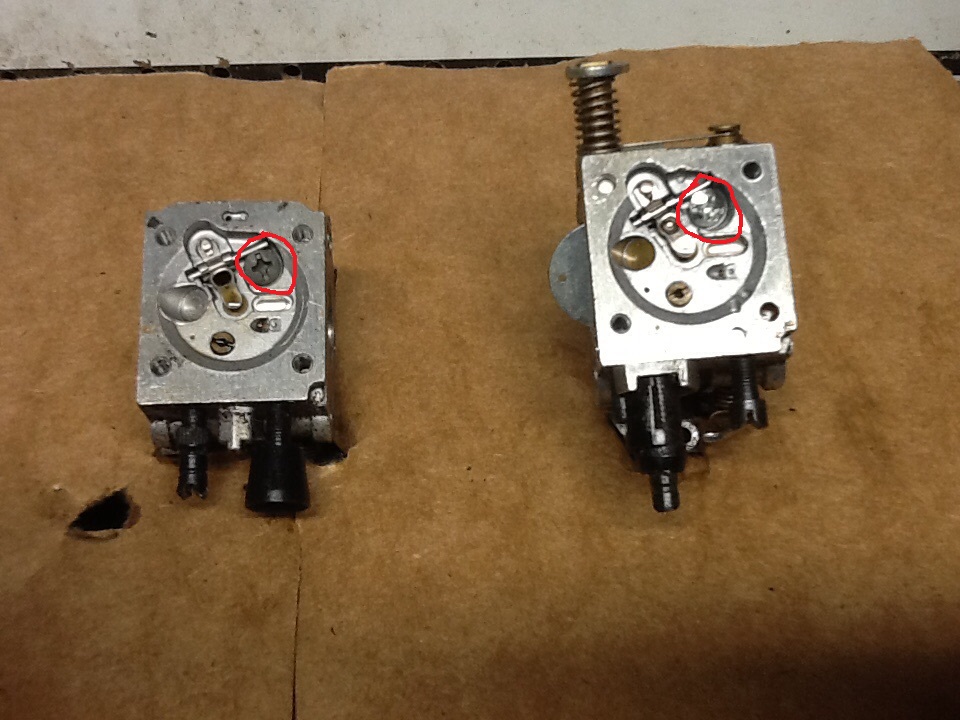
There has been a lot written on why storing a chain saw, weed trimmer, blower or any other 2 cycle machine with ethanol in the tank and carburetor is problematic so that won't be addressed here..
In the photo above is a
quick and easy visual to help determine if you can expect to fix a carburetor or if it will need to be replaced. Both carburetors are shown with the metering cover, diaphragm and gasket removed. The red circle highlights the screw holding down the inlet lever axle. The dull colored screw on the left has been exposed to contaminated fuel (either water or ethanol, likely both). The carb should not be repaired - replacement of the entire carb is the only real option to restore performance. Note also on the left the contaminated fuel puddle on the lever and the dull finish of the brass nozzle. The shiny screw on the right indicates no or little contamination.
However, in this case even the carb on the right needed to be replaced when the machine was in our shop because it would not idle very long and would not accelerate smoothly. So the visual check above is only good to a point. The actual performance of the machine is the true key. A shop like ours can perform tests on the carburetor to determine whether a check valve is leaking or if a internal port is clogged but again there is no real remedy for those ailments other than replacement of the carb.
In rare cases engine leaks around seals and gaskets cause similar symptoms and can be traced down if the problem persists after replacing the carb. Because 90% +/- of all performance issues are resolved with carb replacement we do that early on in diagnosing performance problems and do not spend our time and your money looking further unless needed. This results in much lower labor costs.
How much does it cost to replace a 2 cycle carburetor? Many Stihl carbs cost only about $40 and often the labor is less than that.
Today nearly all (not an exaggeration) performance problems in 2 cycle engines are the result of ethanol and/or water damage
in minute detail within the carburetor body and generally not repairable other than to replace the carb.
Expect to replace any 2 cycle carb
about every 5 years or less if it is exposed to ethanol. This frequent replacement will likely be needed irregardless of any preventative steps you take although such measures do seem to 'buy' some time.